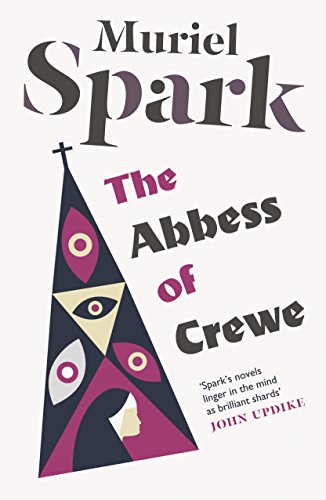They want to know how we reconcile our adherence to the strict enclosed Rule with the course in electronics which we have introduced into our daily curriculum in place of book-binding and hand-weaving. [loc. 197]
The newly-elected Abbess of Crewe, Alexandra, is an innovator. Cool and serene, prone to reciting erotic poetry, she has 'discarded history' and reestablished the ancient Benedictine rule (Matins at midnight, Lauds at 3 a.m., nettle soup and mystery meat [cat food] for supper). Her minions, Sister Winifrede (and Sister Mildred, are wholly supportive without necessarily understanding what they're supporting. Occasionally, via the telephone, we hear the oddly deep voice of Sister Gertrude who is off converting the heathen (but nevertheless seems extremely well-informed about conversations in the cloisters).
Felicity, Alexandra's defeated rival for the role of Abbess, has involved the police in what should be an internal matter: the theft of her love letters to a Jesuit priest. Felicity being an advocate of free love, she would much prefer to destroy the electronics lab and install a love-nest. Now she has left the convent, and is complaining to Rome about Alexandra's innovations and her Machiavellian play for power. And the Vatican are keen on an explanation from Alexandra.
I suspect this would have been a wittier, more satirical read when first published: much of the comedy relies on knowledge of the Watergate affair. A brief dive down the rabbit-hole indicates that The Abbess of Crewe was filmed as Nasty Habits, starring Glenda Jackson: the Wikipedia page for the film provides a handy guide to parallels: Alexandra/Nixon, Gertrude/Kissinger etc.
It is an entertaining read, because Spark's pacing and dialogue is blackly comic and her gift for characterisation sharp. But most of its humour -- the context of its satire -- was wasted on me.

No comments:
Post a Comment